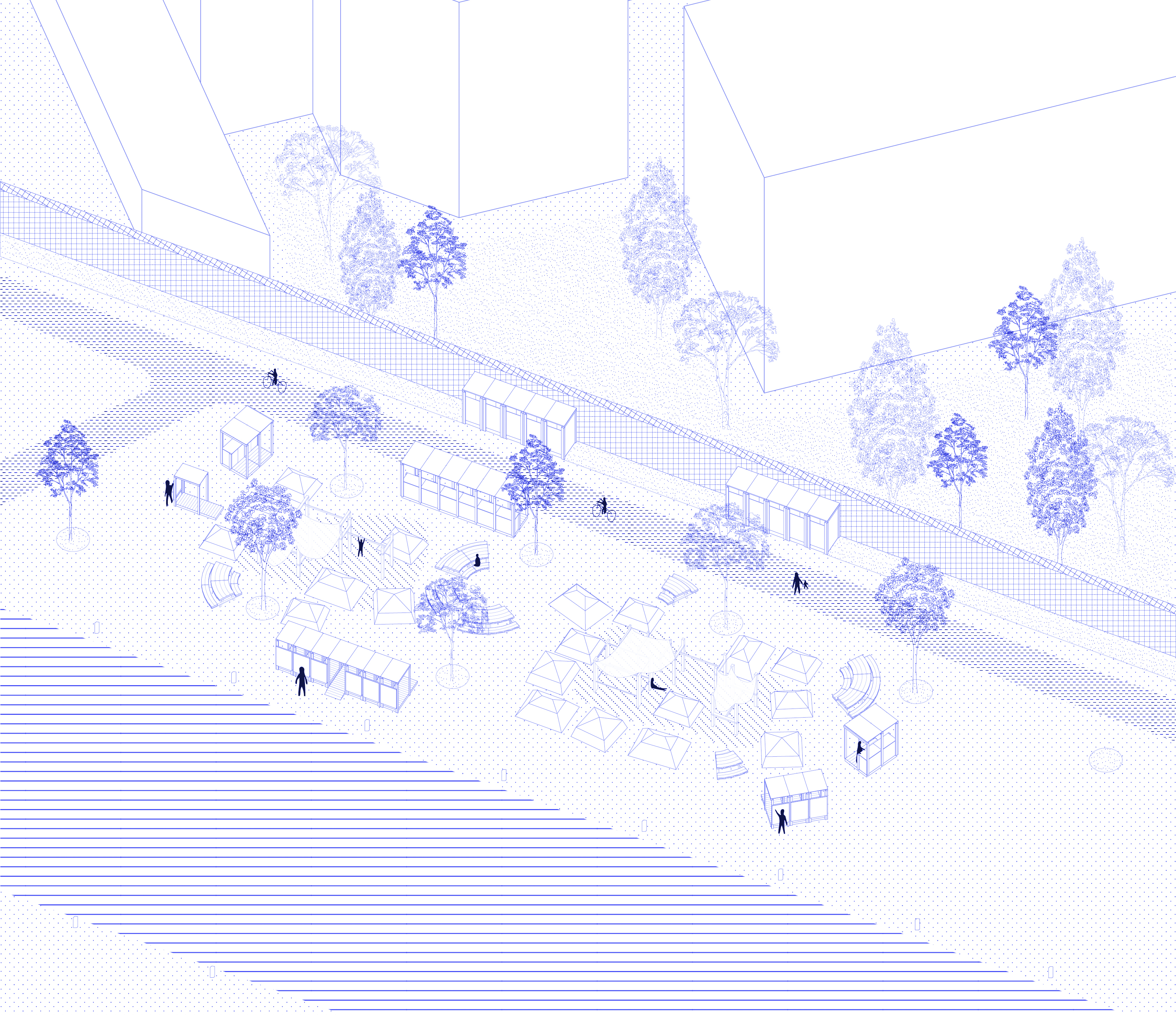Makeshift borders in Porte de la Chapelle.
Strategies of imperfect weak inhabitation across Paris’ Boulevard Périphérique
Abstract
The paper investigates spaces of displacement and makeshift inhabitations along the border of the Paris’ Boulevard Périphérique, identifying how such a material infrastructure of differential inclusion generates thresholds and encounters between the urgency of resistance and the political violence of rejection. At Parisian borders, ongoing practices of containment and control coexist with the production of collective resistance and solidarity. This is testified by the multiple experiences of makeshift dwellings over the years, such as La Zone and the bidonvilles of the northeastern periphery, as well as the current dispersed system of makeshift camps that have been proliferating since 2015. These dynamics testify to the ambivalent proximity that permeates such geographies as simultaneously controlled, exclusive, and protective, through opaque liminalities that serve as fertile ground for equally opaque bodies. The paper stems from field-based research developed between September 2021 and September 2022 in Greater Paris, collaborating with local associations supporting people on the move and refugees inside Parisian border makeshift camps. The study attempted to make visible plural patterns of urban space production, neglected by the contemporary neoliberal and securitized city, and promote new forms of inhabitation on hold. Based on that, the research aimed at deciphering new categories of urban planning that testify to the gigantic power of autonomous practices against the negligence of states and international organisations alike. By delving into such dynamics of resistance and imperfect strategies of inhabiting the uninhabitable, the paper looks at borders as occasions to enact weak and minor projects able to keep alive those areas in which plural lives find degrees of protection and legitimacy in their spatial expression.
Downloads

Downloads
Published
How to Cite
Issue
Section
License
Copyright (c) 2023 Stefano Mastromarino, Camillo Boano

This work is licensed under a Creative Commons Attribution 4.0 International License.
The authors keep their rights upon their work, although they transfer, in a non-exclusive way, the rights of exploitation (reproduction, publication, distribution, public dissemination and presentation) to the Journal. The authors are, therefore, free to enter additional, separate contracts for the non-exclusive distribution of the version of the work published in the Journal (for instance, by hosting in an institutional repository or publication in a book), provided credit is given that the work was initially published in this journal. The works are published under a Creative Commons Attribution 4.0 (CC BY 4.0) license.











